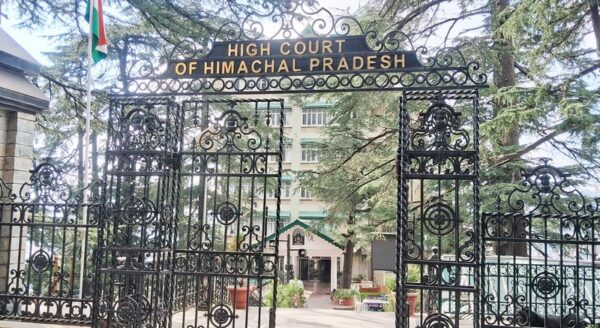News
Temple Funds Cannot Be Used for Welfare Schemes or Road Construction: Himachal Pradesh High Court

The Himachal Pradesh High Court has ruled that temple funds cannot be diverted for government welfare schemes, civic projects, or non-religious purposes, emphasizing that such use would amount to criminal breach of trust.
A division bench comprising Justice Vivek Singh Thakur and Justice Rakesh Kainthla directed state authorities to ensure that every rupee collected by temples is spent solely on religious, spiritual, or charitable purposes directly related to the temples.
The court clarified that temple revenues cannot be treated as state revenue, nor can they be used for public welfare programs, infrastructure development, or unrelated administrative expenses.
According to the directives, temple funds cannot be used for building roads, bridges, or public facilities not directly connected with the temple, for financing government welfare schemes, or for investing in private enterprises or profit-making ventures.
Authorities were also barred from using temple money for running commercial establishments such as malls, shops, or hotels not meant for pilgrims’ welfare, or for purchasing vehicles for commissioners and temple officials — except for reimbursable travel directly related to temple affairs. Similarly, temple funds cannot be used to buy gifts or souvenirs such as chunnis, prasad, or dry fruits for VIPs, or to support interfaith, social, or political events of other religions.
The court stressed that temple funds belong to the deity, who is recognized as a juristic person under law, while trustees and officials are merely custodians. Any misuse or diversion of temple funds, it said, would be treated as criminal breach of trust, and the responsible individuals would be held personally liable.
Each temple has been directed to maintain proper accounts of its income and expenditure, subject to annual audits. Audit reports must be publicly displayed on temple notice boards or websites to ensure transparency and public confidence in temple administration.
The bench stated that the objective of these directions is to uphold accountability and preserve the sanctity of religious institutions, ensuring that devotees’ offerings are used exclusively for the promotion of faith and the welfare of the Hindu community.
The court further observed:
“India has adopted a secular and democratic system of governance, where secularism does not imply atheism but equal respect for all faiths. While the State is not expected to perform religious functions, under Article 25 of the Constitution it is both empowered and obligated to take steps for the reform and betterment of Hindu religious institutions. Once state officials act as trustees of temples and monasteries, the State becomes indirectly involved in their management and regulation. Therefore, apart from overseeing secular functions, it is also the State’s duty to ensure that temple income and devotees’ offerings are utilized in accordance with the true spirit of Hindu faith.”
The ruling came in response to a petition challenging the misuse of funds from Hindu temples in Himachal Pradesh.
